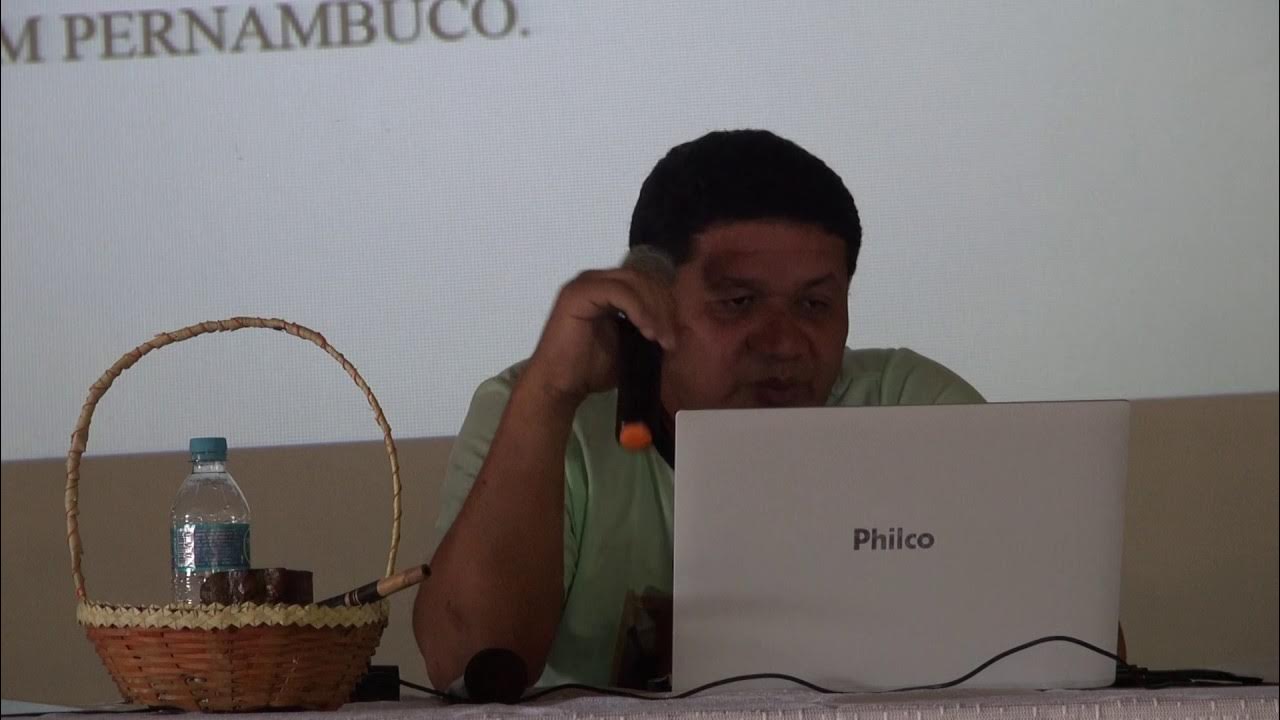Aula 23 | Realidade Brasileira - Povos Indígenas no Brasil - CNU
Summary
TLDRIn this engaging lesson, Professor Yur Matos explores the contemporary Indigenous issue in Brazil, highlighting the cultural, political, and historical significance of over 300 Indigenous groups. He discusses the complexities surrounding land rights, the impact of agricultural and mining interests, and the vital connection between Indigenous peoples and environmental conservation. Despite constitutional protections, Indigenous rights face significant challenges, exacerbated by the COVID-19 pandemic. The lesson emphasizes the importance of representation and understanding the struggles faced by Indigenous communities, encouraging students to reflect on their role in advocating for Indigenous rights and recognition.
Takeaways
- 😀 Brazil is home to over 300 distinct indigenous groups, each with unique languages and cultural practices.
- 🌍 Indigenous territories are vital for the preservation of biodiversity and cultural heritage.
- ⚖️ The Brazilian Constitution of 1988 recognizes the rights of indigenous peoples, including land rights.
- 💼 Despite legal protections, indigenous communities face challenges such as land invasions and violence.
- 🏞️ The government is required to demarcate indigenous lands, but bureaucratic obstacles complicate this process.
- 📚 Indigenous knowledge is crucial for environmental sustainability, yet often disregarded in favor of economic development.
- 💔 The COVID-19 pandemic has severely impacted indigenous communities, highlighting existing vulnerabilities in healthcare access.
- 📖 Education for indigenous peoples is essential for cultural preservation but faces resource shortages.
- 🗣️ Political representation is crucial for influencing policies that affect indigenous rights and territories.
- 👥 Engaging with the historical and contemporary issues faced by indigenous peoples is vital for understanding Brazil's social dynamics.
Q & A
What is the focus of the lecture series led by Professor Yur Matos?
-The lecture series focuses on the reality of Brazil, with particular emphasis on Indigenous peoples and their rights, culture, and contemporary challenges.
How many distinct Indigenous peoples are recognized in Brazil?
-Brazil is home to over 300 distinct Indigenous peoples, each with their own languages, traditions, and customs.
What contributions do Indigenous cultures make to Brazilian society?
-Indigenous cultures contribute to Brazil's linguistic and cultural diversity through art, cuisine, traditional medicine, music, and dance.
What challenges do Indigenous communities in Brazil face?
-Indigenous communities in Brazil face violence, marginalization, and difficulties accessing basic services like health care and education.
What constitutional rights do Indigenous peoples have regarding their lands?
-The Brazilian Constitution of 1988 recognizes Indigenous peoples' rights to their traditional lands, though the process of land demarcation can be complicated.
What pressures are Indigenous lands in Brazil facing?
-Indigenous lands are under pressure from agricultural expansion, mining, and logging activities, leading to conflicts and environmental degradation.
What are the key protections for Indigenous rights established by the 1988 Constitution?
-The 1988 Constitution established protections for Indigenous rights, including land rights, cultural rights, and the right to self-determination.
How has the COVID-19 pandemic affected Indigenous communities in Brazil?
-The COVID-19 pandemic disproportionately affected Indigenous communities, exacerbating existing vulnerabilities related to health, education, and economic security.
What is the importance of Indigenous ecological knowledge?
-Indigenous peoples possess valuable ecological knowledge that is essential for biodiversity conservation and climate change mitigation.
Why is political representation important for Indigenous peoples in Brazil?
-Political representation is crucial for Indigenous peoples to advocate for their rights and interests, ensuring that their voices are heard in decision-making processes.
Outlines

Этот раздел доступен только подписчикам платных тарифов. Пожалуйста, перейдите на платный тариф для доступа.
Перейти на платный тарифMindmap

Этот раздел доступен только подписчикам платных тарифов. Пожалуйста, перейдите на платный тариф для доступа.
Перейти на платный тарифKeywords

Этот раздел доступен только подписчикам платных тарифов. Пожалуйста, перейдите на платный тариф для доступа.
Перейти на платный тарифHighlights

Этот раздел доступен только подписчикам платных тарифов. Пожалуйста, перейдите на платный тариф для доступа.
Перейти на платный тарифTranscripts

Этот раздел доступен только подписчикам платных тарифов. Пожалуйста, перейдите на платный тариф для доступа.
Перейти на платный тарифПосмотреть больше похожих видео
5.0 / 5 (0 votes)






